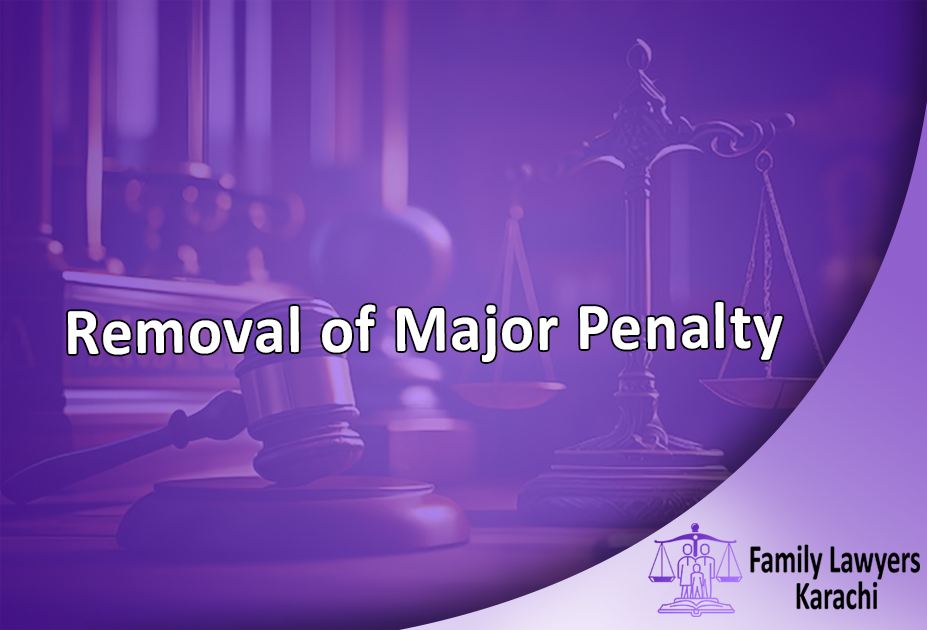Employment Cases
Removal of Major Penalty

When Is Penalty Imposed?
Penalty can only be imposed under certain circumstances. For instance, Cessation of efficiency, Guilty of misconduct, Commission of corruption,
Engagement in subversive (seditious, rebellious) activities, Association with subversive activists, Guilty of the disclosure of official secrets or if Retention in service is prejudicial (disadvantageous, injurious, counterproductive) to national security. There is also a need for facts to prove the employee guilty in order to impose a penalty.
What Is A Minor Penalty?
Minor penalties include the following types:
1-Censure which includes criticism, condemnation, or disapproval.
2- stopping financial advancements for example a stop of increment.
3-Withholding promotion.
What Is A Major Penalty?
Major penalties can include
1-Demotion which is reduction to a lower grade
2-Recovery of a loss caused to the government.
3-Forced retirement.
4-Removal or Dismissal from service
Inquiry:
A penalty is not imposed without an Inquiry. The inquiry is held by the authority or authorised officer by the authority. The inquiring officer has the power to summon and enforce the attendance of the person. He can demand the requirements and production of the documents. His power involves receiving evidence on affidavits and issuing of commission for the examination of witnesses or documents. The proceedings under these rules shall be deemed to be judicial proceedings within the meaning of Ss. 193 and 228 of the Pakistan Penal Code.
What Can An Employee Do After Getting A Major Penalty?
If an employee, under any unfortunate circumstances has been awarded with a major Penalty then the most preferable move is the Departmental Appeal.
Appeal:
It can be made in the form of a writing directed to the authority prescribed. You are required to mention concisely the grounds of objection. A respectful and proper language should be used. It is filed with the authority that made original orders. It is important to note that the appeal should be made within thirty days from the date of communication of the order. The appeal is then forwarded to appellate authority within a fortnight with comments. This empowered authority will take a look at the record of the case. The Appellate authority has certain powers which include the following:
- May dismiss appeal
- May reverse the finding and acquire the accused.
- May order for further or fresh inquiry.
- May reduce the penalty.
- May enhance the penalty.
After analysing it they will put forward their comments on the raised points in the appeal from the concerned department or office. A hearing of appeal will take place.
A second appeal can also be filed:
It cannot be made in every case. It can be preferred only in some cases where the penalty is enhanced by the appellate authority. Furthermore, it can be preferred to the next higher authority within thirty days of the communication of the orders.
After considering the appeal or by the review petition, the concerned authority upholds the Order in writing. They can also reject the appeal or review the petition or even set aside the order.
